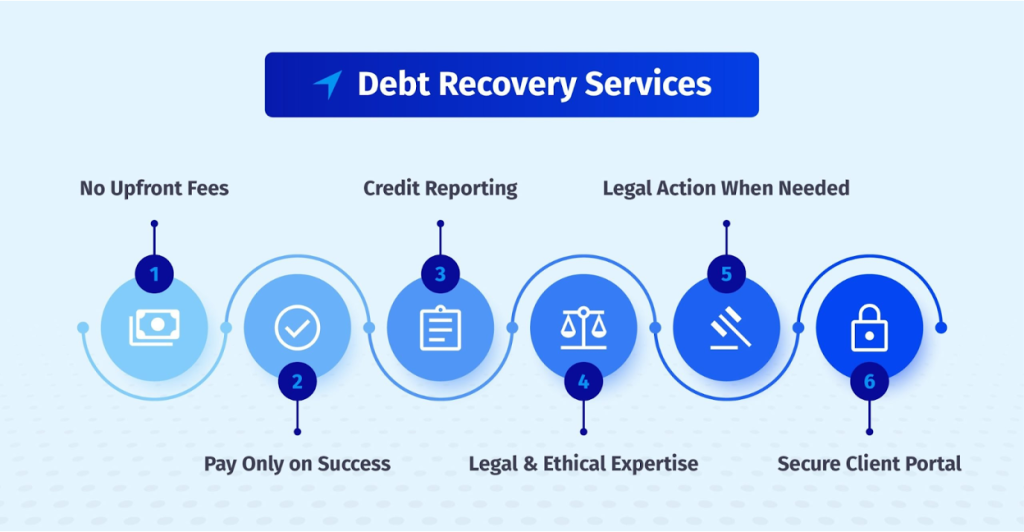- Customer Service 866-837-3065 Make A Payment (866) 558-3328
- Client Portal
- Consumer Support

When patients schedule appointments, dental offices collect demographic information and insurance details. This initial verification step determines coverage levels, benefits, and estimated out-of-pocket costs. Accurate information at this stage prevents billing surprises later and reduces disputes that could lead to nonpayment.
During the dental visit, dentists document all treatments, procedures, and clinical notes necessary for accurate billing and insurance claims. Once treatment is complete, the office submits claims to insurance companies with appropriate procedural codes and supporting documentation. Insurance payments typically post within 30 to 45 days, though complex cases may take longer.
After insurance payments are received and posted, dental offices bill patients for remaining balances, including copays, deductibles, and non-covered services. Most practices expect payment within 30 days of billing, though some offer payment plan options for larger balances.
This is where many collection issues begin, as patients may dispute charges they believe should have been covered by insurance, face financial hardship, or simply overlook bills among other obligations.
|
Southwest Recovery Services: Get Your Money Back 20+ Years Experience | Texas-Based | Contingency Only – You Pay When We Collect
Built for Commercial Collections:
The Southwest Recovery Difference: ✓ Contingency only – no upfront costs ✓ Veteran collectors with respectful omnichannel outreach ✓ Priority sectors: trucking, logistics, contractors, oil & gas ✓ Clear reporting on account status and outcomes Trust & Results You Need: Nationally recognized ethical collections agency with 12 offices across six states. Compliance-first approach with no threats or guarantees. |
Yes, Dental Bills Can Be Sent to Collections

The straightforward answer is yes, dental bills can absolutely be sent to collections when patients fail to pay after reasonable attempts at direct communication and resolution. Dental practices have the same legal rights as other creditors to pursue unpaid debts through third-party collection agencies.
Most dental offices follow a progressive communication protocol before referring accounts to collections. This typically includes multiple billing statements, phone call reminders, and sometimes final notice letters. When these internal efforts fail after 90 to 180 days, referring the account to a professional collection agency becomes a practical necessity.
Outsourcing collections serves several important purposes for dental practices. Collection agencies bring specialized expertise, resources, and persistence that busy dental offices often cannot maintain internally. Professional collectors understand debtor psychology, compliance requirements, and negotiation strategies that maximize recovery while minimizing legal risk.
Beyond the practical aspects, using a collection agency allows dental staff to focus on patient care rather than spending valuable time pursuing overdue accounts. Collection agencies also have tools that dental offices typically lack. These include skip-tracing technology to locate patients who have moved, credit bureau reporting capabilities that encourage payment, and established legal partnerships if litigation becomes necessary.
While practices vary in their specific policies, industry standards suggest certain timeframes. Fresh accounts under 90 days old typically remain with the dental practice for internal collection efforts. These newer debts have higher recovery probabilities and respond well to direct communication from the provider.
Accounts aged 90 to 180 days represent the optimal time for collection agency referral. At this point, internal efforts have been exhausted, but the debt hasn’t aged so much that recovery becomes extremely difficult.
When a dental practice refers an account to a collection agency, a structured recovery process begins. This multi-stage approach balances effective debt recovery with patient relationships and regulatory compliance.
Collection agencies typically initiate contact within days of receiving an account referral. The first communication includes verification of the debt amount, creditor information, and patient rights under the Fair Debt Collection Practices Act.
Following the written notice, agencies begin phone outreach using multiple communication channels. Professional collectors trained in healthcare debt understand that dental bills often involve misunderstandings about insurance coverage or financial hardships rather than intentional avoidance.
Successful collection agencies focus on finding workable solutions rather than aggressive demands. This might include payment plans that break larger balances into manageable monthly installments, settlement offers for reduced amounts when patients face genuine financial hardship, or navigating insurance appeals for disputed coverage issues.
If patients fail to respond to initial contacts or refuse reasonable payment arrangements, agencies may escalate their efforts within regulatory guidelines. This can include reporting the delinquent account to credit bureaus, which can remain on credit reports for up to seven years from the date of first delinquency.

Dental debt collection operates within strict legal frameworks designed to protect consumers while allowing legitimate debt recovery. The Fair Debt Collection Practices Act governs how collection agencies can pursue unpaid debts, prohibiting harassment, deceptive representations, and unfair practices.
While these regulations primarily govern third-party collection agencies, dental practices engaging in their own collection efforts must also observe similar standards to avoid legal liability.
The statute of limitations for dental debt varies by state but typically ranges from three to six years, with four years being common. This represents the timeframe within which a creditor can file a lawsuit to recover unpaid debt.
Dental practices must also balance debt collection efforts with patient privacy obligations under HIPAA. Professional collection agencies specializing in healthcare debt understand these privacy requirements and structure their communications accordingly.
While some accounts will inevitably require collection agency involvement, dental practices can implement strategies that significantly reduce the volume of unpaid bills reaching this stage. Some of these practices include:

Dental practices need partners who understand both debt recovery and the unique sensitivities of healthcare billing. Southwest Recovery Services is the perfect partner as we bring over 20 years of specialized experience helping dental practices recover unpaid accounts while maintaining patient relationships and compliance standards.
We understand that dental patients often face genuine confusion about insurance coverage, financial hardships, or billing disputes that require empathetic communication rather than aggressive tactics. Our relationship-preserving approach balances persistent professionalism with diplomatic outreach, recognizing that today’s collection account might be tomorrow’s returning patient.
Dental practices only pay when we successfully recover funds, with fees typically ranging from 10–25% of collected amounts, depending on account age and complexity. Our veteran collectors bring specialized knowledge of healthcare billing complexities, insurance processes, and patient communication strategies that general collection agencies often lack.
We also maintain compliance-first operations that adhere to all Fair Debt Collection Practices Act requirements and healthcare privacy regulations, protecting dental practices from legal exposure.
With AI-guided tracking software that monitors every promise to pay across phone, email, text, and mail, we provide dental practices with transparent reporting and real-time updates on collection progress. For dental practices struggling with unpaid bills that distract from patient care and strain cash flow, partnering with SWRS provides professional collections results without the administrative burden or reputational risks of handling collections internally.
Yes, dental offices have full legal authority to send unpaid bills to collection agencies. Dental services represent legitimate debts.
When patients fail to pay after reasonable internal collection efforts, referring accounts to professional collection agencies is both legal and common practice.
The typical timeline for dental bills going to collections ranges from 90 to 180 days after the original billing date, though individual practice policies vary.
Yes, dental bills sent to collections can negatively impact credit scores once the collection agency reports the delinquent account to credit bureaus.
Collection accounts can remain on credit reports for up to seven years from the date of first delinquency, potentially lowering credit scores, depending on prior credit history.
Professional collection agencies typically charge contingency fees ranging from 10% to 25% of successfully recovered amounts, meaning dental practices only pay when the agency collects.
Newer accounts under 90 days old usually incur lower fees of around 10% to 15%, while older accounts over 180 days may carry rates of 20% to 25% due to the increased difficulty of collection.
Southwest Recovery Services stands out with more than 20 years of specialized healthcare collections experience, giving us a deep understanding of the billing complexities and patient sensitivities that dental practices face every day.
We operate exclusively on a contingency-based model with no upfront costs, so dental practices only pay when SWRS successfully recovers funds. Our relationship-focused approach emphasizes respectful, professional communication that preserves future patient relationships while effectively recovering past-due accounts.
*Note: Recovery rates mentioned are for general reference only and not guaranteed. Actual results vary by account and industry. Contact Southwest Recovery Services for a customized quote.


We make it fast and easy to refer past due and delinquent accounts to our professional recovery agents. You decide the range on what you will accept on each case, and you ONLY pay a percentage of what we actually collect to resolve the case. Ready to get started, or want to learn more? Fill out this form and a dedicate account manager will call you to get started.